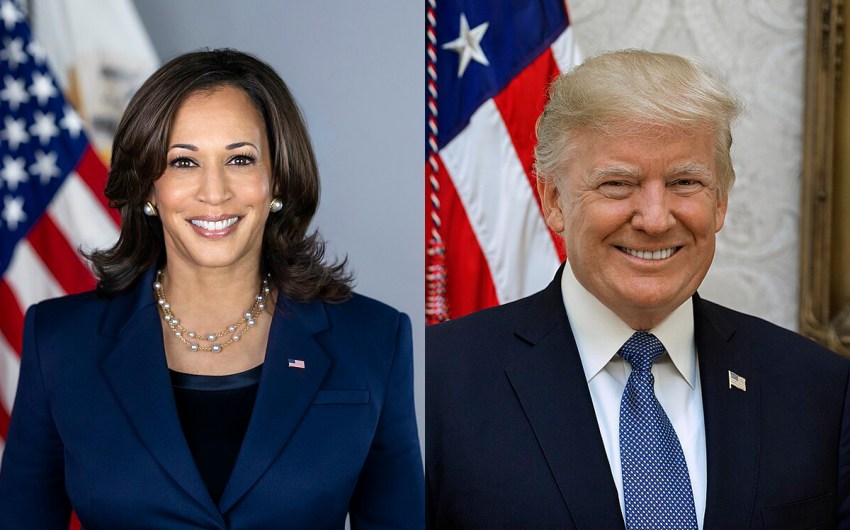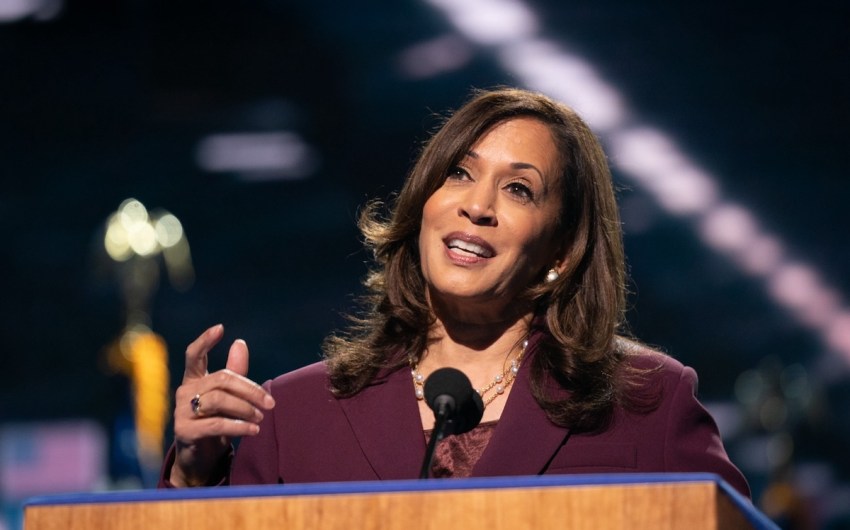Walz, Vance Poised for VP Debate as Trump Moves to Subvert Election Result If Harris Wins
Tuesday’s Clash of Running Mates Will Likely Be Final Marquee Media Event of Campaign

Amid the fog of political war, one thing is certain about the 2024 presidential election: win or lose, Donald Trump will declare victory.
That is the essential, disturbing, and immutable backdrop to Tuesday night’s debate between Minnesota Governor Tim Walz and Ohio Senator J.D. Vance, the Democratic and Republican vice-presidential nominees, respectively.
The undercard event is expected to highlight vast policy and partisan differences — along with two very different versions of Midwestern masculinity.
Vance, who came to public notice as the author of Hillbilly Elegy, advanced from Appalachian striver to Yale Law School sophisticate, and transformed from fiercely critical Never-Trumper to sycophantic attack dog for the MAGA movement and its leader. Slick if stiff, he is a skillful and dangerous debater, notwithstanding the unfavorable first impression he’s made on American voters due to his hard-right Catholic views about gender roles, reckless harangues against Haitian immigrants in his home state, and unearthed comments about “childless cat ladies.”
Walz, an ex-high school teacher and football coach, was elected to six congressional terms in a longtime Republican-held House district before winning two races for governor. He has emerged as a high-energy Harris cheerleader, whose girl-dad vibe and “Aw-shucks,” Minnesota-nice manner have forged a positive image among the three-fourths of Americans who know enough about him to form an opinion. He admitted, in his first interview with Harris, that he’s not a good debater, and is likely to face questions during the event about a liberal record that belies his camo-clad hunter persona.
Since Bob Dole and Walter Mondale clashed in the first vice-presidential debate in 1976, televised contests between the Number Twos on national tickets have rarely made much difference or made much news — except for this one:
What Veeps Must Do: Political stakes for the Walz-Vance confrontation are somewhat higher than usual, in part because Trump has refused a second debate with Harris after a less-than-stellar performance in their first meeting, which likely means Tuesday’s clash of running mates will be the final marquee media event of the campaign.
The 60-year-old Walz and the 40-year-old Vance are both new players on the national political stage, and both have three basic, Sancho Panza–sidekick duties in the debate.
- Proclaim the virtues, sing the praises, and defend the record of the person who selected them, keeping the focus on their party’s presidential nominee — and off themselves — as much as possible.
- Woo non-college-educated, white male voters, a large and crucial slice of the electorate; the nation’s first Black woman nominee selected Walz, specifically, to cut into Trump’s deep support among this group, whose loyalty Vance was picked to reinforce.
- Put forward an overall performance that meets the threshold test of a plausible president for voters, while avoiding any blunders, gaffes, or misstatements that violate the first rule of running for vice president: First do no harm.
Thirty-five days before Election Day, a daily deluge of media, academic, and other polling continues to show the race a tossup, as early voting already has begun in many states.
Since President Joe Biden withdrew from the campaign in June, Harris has reversed the shape of the race, and now holds an aggregated lead of two points in the Real Clear Politics poll tracker, reversing the position in which the Democrats found themselves a few months ago.
The vice-presidential debate will be broadcast from New York by CBS at 6 p.m. PDT.
Here are three other key takeaways about the state of play:
Election Denialism: In 2024, one presidential candidate believes in the peaceful transfer of power; the other tried to mount a coup.
In 2020, it took Trump only a few weeks to convince nearly two-thirds of his party’s voters that he had defeated Biden. After spreading the Big Lie over the past four years (and despite indictment by a Justice Department Special Counsel for his actions preceding and surrounding the violent January 6 attempt to block certification of the Electoral College vote), he has conditioned Republicans to believe that he can only lose an election if the other side cheats.
In the last election, the hurried and chaotic effort by Trump and his allies to overturn the results was very much an ad hoc affair. This time they’re better organized and have started much earlier to undermine public confidence in the integrity of vote counting across the nation, in anticipation of another possible defeat at the polls.
“Republicans are building an election subversion war machine,” said voting rights attorney Marc Elias, who led the legal battle against Trump’s false claims of 2020 election fraud and, as the founder of Democracy Docket, is doing the same this year.
Daniel Dale, CNN’s sui generis fact checker, has catalogued 12 key falsehoods Trump is peddling, day after day, to contaminate the election process.
“Former President Donald Trump has escalated his long-running assault on the integrity of U.S. elections as the 2024 presidential campaign enters its final stretch, using a new series of lies about ballots, vote-counting, and the election process to lay the groundwork to challenge a potential defeat in November.”
MAGA forces are far better organized to subvert the election than they were four years ago, in large part because of the takeover of the Republican National Committee by the Trump family. Financial resources that previously were aimed at ground game and get-out-the-vote activities have been redeployed on battalions of lawyers, and pro-Trump attorneys and activists already have filed about 90 lawsuits, which, variously, try to cull unfavorable voters from the rolls, gum up the counting process, or otherwise lay the groundwork for post–November 5 objections.
The New York Times reports:
“Republicans have unleashed a flurry of lawsuits challenging voting rules and practices ahead of the November elections, setting the stage for what could be a far larger and more contentious legal battle over the White House after Election Day.
The onslaught of litigation, much of it landing in recent weeks, includes nearly 90 lawsuits filed across the country by Republican groups this year. The legal push is already more than three times the number of lawsuits filed before Election Day in 2020, according to Democracy Docket, a Democratically aligned group that tracks election cases.
Voting rights experts say the legal campaign appears to be an effort to prepare to contest the results of the presidential election after Election Day should former President Donald J. Trump, the Republican nominee, lose and refuse to accept his defeat as he did four years ago. The lawsuits are concentrated in swing states — and key counties — likely to determine the race.
Several embrace debunked theories about voter fraud and so-called stolen elections that Mr. Trump has promoted since 2020.”
This pre-election legal blitz is only one feature of a broader Trump strategy to try taking power by beyond-electoral means:
Nowhere is the effort to warp the election process more flagrant than in Georgia, where local allies of Trump have taken over a state election board and set the stage for delay, confusion, and uncertainty via a new set of regulations, approved via partisan votes, that give previously ministerial unelected officials sweeping new power to investigate election results.
Democrats have filed suit against the changes in Georgia, but it is only one state where Trump election deniers are in position to trigger a rerun, or worse, of 2020:
An investigation of election processes and personnel in swing states by Rolling Stone found that:
“In the swing states of Arizona, Georgia, Michigan, Nevada, North Carolina, and Pennsylvania, Rolling Stone … identified nearly 70 pro-Trump election conspiracists currently working as county election officials who have questioned the validity of elections or delayed or refused to certify results. At least 20 of these county election officials have refused or delayed certification in recent years.”
Republicans insist they are merely trying to head off an epidemic of fraud, but the party and its allies — including a special commission led by Vice President Mike Pence during the Trump administration — have failed repeatedly, and for years, to produce any such evidence.
In recent weeks, Trump, Vance, and other MAGA representative have tried to align evidence-free conspiracy theories about voter fraud with their pounding attacks over immigration, claiming that Democrats have opened the Mexican border to attract loyal new voters.
“Democrats continue to put noncitizens first and Americans last as they allow noncitizens to vote,” RNC chair Michael Whatley said in a recent press release announcing a new lawsuit.
Fight for the Senate: Regardless of who wins the presidential race, Republicans are heavily favored to take over control of the Senate.
One-third of the 100 seats in the Senate, which carry six-year terms, are on the ballot every two years and in 2024, the campaign map heavily favors the GOP.
Democrats currently control the Senate 51-49. This means that Republicans need a net gain of just two seats to take over, positioned to thwart a Harris presidency if she wins.
Here is a guide to key races to follow:
Democrats face unpromising prospects in two states where incumbents of their party have managed to hang on amid increasing pro-Trump sentiment among the electorate voters. But time now may have run out.
West Virginia Senator Joe Manchin is retiring from office, and the Democrats have virtually no chance of holding the seat in November, in a state that Trump won by nearly 40 points.
In Montana, longtime incumbent Jon Tester, the last statewide elected Democrat, trails Republican challenger Tim Sheehy, a Trump-backed business executive and former Navy Seal, whose attacks on immigration, inflation, and gun rights have gained traction. It’s notable that Tester has declined to endorse Harris for president.
Democrats also are battling to hold the Arizona Senate seat given up by the mercurial Kyrsten Sinema. What once was viewed as a margin-of-error race, however, now seems Democratic Rep. Ruben Gallego’s to lose. He is campaigning against Republican election denier, Trump superfan, and former TV personality Kari Lake, who’s still complaining that the 2022 election, in which she tried and failed to win the governorship, was rigged. Polls suggest Arizona voters are tired of hearing about it.
In Ohio, a historically toss-up state that Trump convincingly won twice, longtime Democratic Senator Sherrod Brown is clinging to a small polling lead against Trump-backed Republican Bernie Moreno, an ex-car dealer who is outspending him two-to-one in TV advertising.
Democratic Senators in three other crucial Midwest Senate races — Tammy Baldwin in Wisconsin, Bob Casey in Pennsylvania, and Elissa Slotkin in Michigan — also are leading Republican rivals, by between two and six points.
The political calculus: with West Virginia gone and Montana slipping away, Democrats would need to hold serve in all the battleground states and flip at least one additional Republican-held seat to have a 50-50 split in the Senate with the next vice president tie-breaking vote on polarized policy issues and crucial judicial appointments.
Dem.s last week began directing millions of dollars to Texas and Florida in hopes of helping insurgent Democratic challengers. In the Lone Star State, Democratic Rep. Colin Allred is running a too-close-to-call campaign against unpopular GOP incumbent Ted Cruz; in the Sunshine State former Rep. Debbie Mucarsel-Powell has mounted an unexpectedly strong effort against first-term GOP Senator Rick Scott.
Both states are vast, have multiple expensive media markets, and have proved to be political fantasy mirages for Democrats in the past, however. A victory in either would be a major upset.
House Work: Republicans currently hold a 221-213 seat advantage in the House of Representatives.
This means that Democrats need to hold all their seats, and to flip five that currently are GOP-held, to take control of the chamber. If Trump wins the presidential race and Republicans hold the Senate as expected, this would give Democrats at least a remnant of power in Washington to resist a right-wing agenda infused by Project 2025.
Their most direct pathways of doing so run through New York, where Republicans won a series of surprise wins in 2022 in a traditionally blue state, and in California, where favorable outcomes in half a dozen close races could give Democrats their margin by itself.
Recent polling, conducted by a partnership between USC, Cal State Long Beach, and Cal Poly Pomona, found that Democrats hold slight leads, or at worst are tied, in five districts now controlled by Republicans.
Somewhat complicating matters, the Dem. candidate trails in one open-seat contest that had been held by their party.
Here’s rundown:
CA -13. Democrats hold a significant registration advantage in this San Joaquin Valley agricultural district, now represented by fourth-generation farmer and freshman GOP Rep. John Duarte, who portrays himself as a moderate on abortion, immigration, and spending issues. In a rematch from 2022, he faces former Democratic assemblymember Adam Gray, who appeals to centrist voters with boasts of bucking his party on issues like the state gas tax.
CA-22. This is another San Joaquin Valley district with a heavily Latino population and a Democratic registration edge, now held by a local Republican farmer challenged by an ex-Democratic state legislator whom he narrowly defeated two years ago. Rep. David Valadao, one of only two GOP House members who politically survived voting to impeach Trump after January 6, faces moderate Democrat Rudy Salas, who would be the district’s first Latino member.
CA-27. This northern L.A. County, high-desert district includes Santa Clarita and the Antelope Valley, has a Democratic registration edge, and voted for Biden in 2020. Incumbent GOP Rep. Mike Garcia, an ex-Navy pilot and defense industry executive, first captured it by 333 votes, after Democrat Katie Hill resigned amid a 2019 sex scandal. Supported by the crypto industry, he faces Democrat and ex-NASA chief George Whitesides, who’s hit him as an abortion extremist.
CA-41. This Inland Empire district, which also includes Palm Springs, is evenly divided in partisan voter registration and features yet another 2022 re-match. Republican Rep. Ken Calvert has held the seat for 30 years but faces an aggressive challenge from former federal prosecutor Will Rollins, who highlights his biography as a gay man in attacks of Calvert for past anti-LGBTQ votes and homophobic statements on gay marriage and gay service members in the military.
CA-45. This Orange County district has a large Asian-American population, has closely divided partisan registration, and voted for Biden in 2020. But two-term GOP Rep. Michelle Steel, a South Korean immigrant and former county supervisor, is a vigorous campaigner and potent fundraiser who remains a favorite over Democratic challenger and attorney Derek Tran, who would be the first Vietnamese American ever to hold the seat.
CA-47. This Orange County swing district is currently represented by progressive Democratic Rep. Katie Porter, who gave up the seat for a failed bid for U.S. Senate. Republican Scott Baugh, an attorney and former legislator, and Democratic State Senator Dave Min have brawled for months over personal integrity, with the former’s past campaign finance violations and the latter’s drunk driving conviction making campaign discourse a political free-fire zone. The USC polling consortium found Baugh with a small but significant lead here.
Premier Events
Fri, Jan 31
5:00 PM
Santa Barbara
Artist Talk at Art & Soul on State Street
Wed, Jan 22
5:30 PM
Santa Barbara
Talk: “Raising Liberated Black Youth”
Sun, Jan 26
11:00 AM
Santa Barbara,
17th Annual Santa Barbara Community Seed Swap 2025
Thu, Jan 30
8:00 PM
Solvang
Lucinda Lane Album-Release Show, at Lost Chord Guitars
Fri, Jan 31
9:00 AM
Goleta
AARP FREE TAX PREPARATION
Fri, Jan 31
5:00 PM
Santa Barbara
Artist Talk at Art & Soul on State Street
Sat, Feb 08
10:00 AM
Santa Barbara
Paseo Nuevo Kids Club
Sat, Feb 08
12:30 PM
Solvang
Garagiste Wine Festival
Tue, Feb 11
8:00 PM
Santa Barbara
SBIFF – Tribute to Timothée Chalamet
Thu, Feb 13
8:00 PM
Santa Barbara
SBIFF – Tribute to Adrien Brody and Guy Pierce
Fri, Jan 31 5:00 PM
Santa Barbara
Artist Talk at Art & Soul on State Street
Wed, Jan 22 5:30 PM
Santa Barbara
Talk: “Raising Liberated Black Youth”
Sun, Jan 26 11:00 AM
Santa Barbara,
17th Annual Santa Barbara Community Seed Swap 2025
Thu, Jan 30 8:00 PM
Solvang
Lucinda Lane Album-Release Show, at Lost Chord Guitars
Fri, Jan 31 9:00 AM
Goleta
AARP FREE TAX PREPARATION
Fri, Jan 31 5:00 PM
Santa Barbara
Artist Talk at Art & Soul on State Street
Sat, Feb 08 10:00 AM
Santa Barbara
Paseo Nuevo Kids Club
Sat, Feb 08 12:30 PM
Solvang
Garagiste Wine Festival
Tue, Feb 11 8:00 PM
Santa Barbara
SBIFF – Tribute to Timothée Chalamet
Thu, Feb 13 8:00 PM
Santa Barbara





















